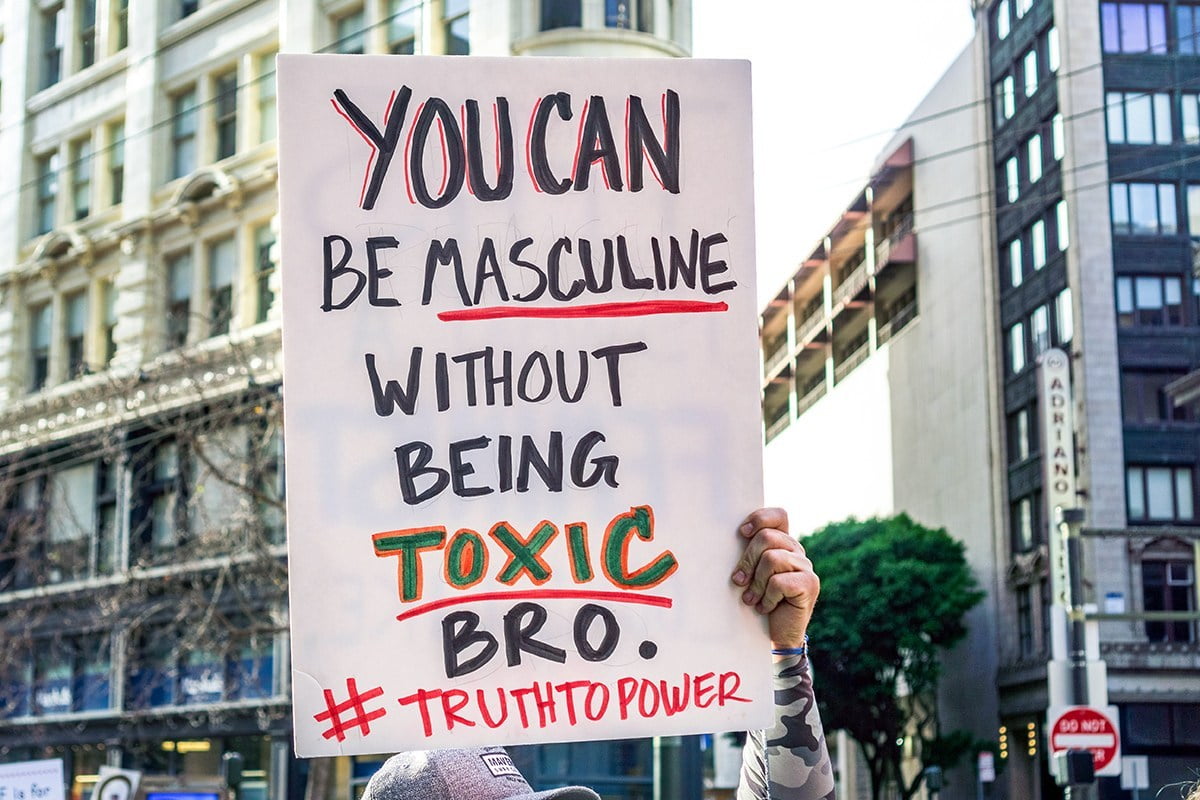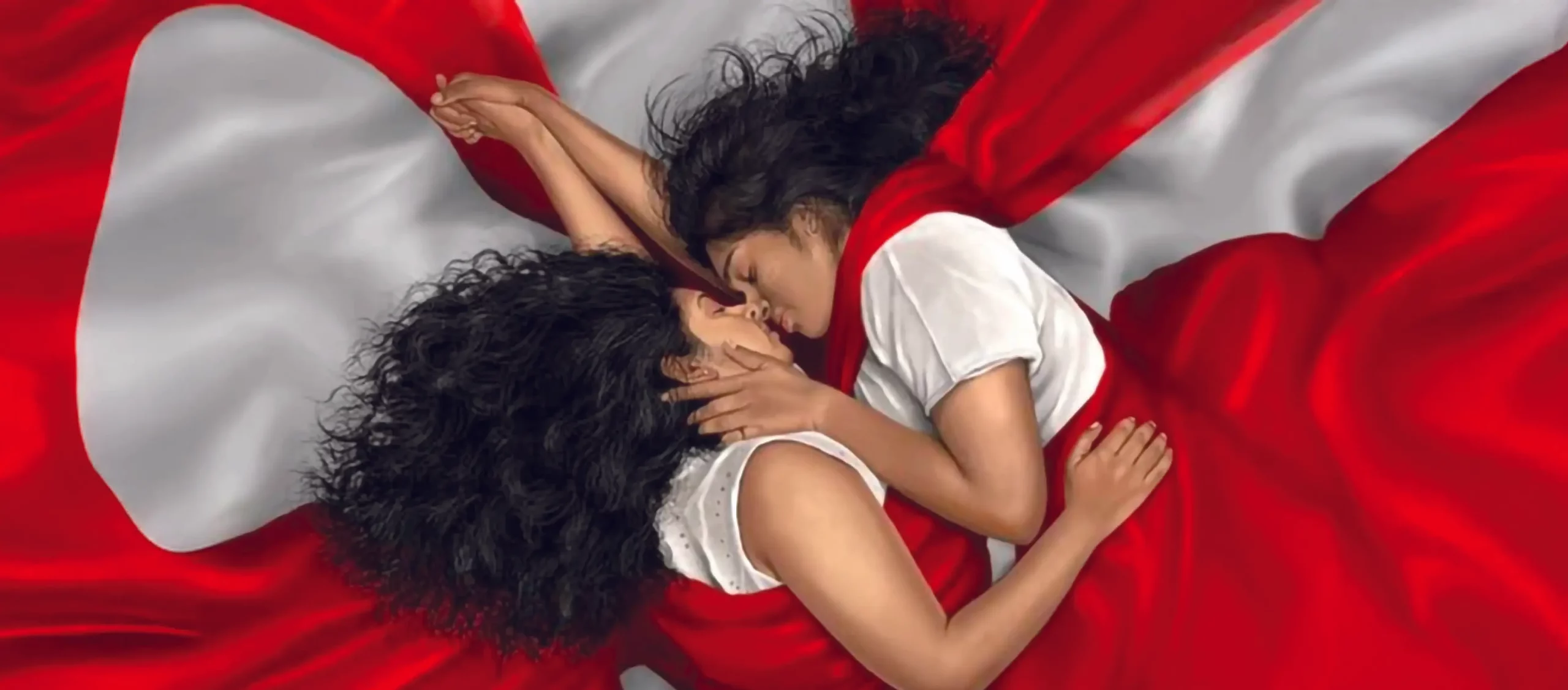Editor’s Note: This month, that is September 2020, FII’s #MoodOfTheMonth is Boys, Men and Masculinities, where we invite various articles to highlight the different experiences of masculinity that manifest themselves in our everyday lives and have either challenged, subverted or even perpetuated traditional forms of ‘manliness’. If you’d like to share your article, email us at pragya@feminisminindia.com.
Posted by Anupriya Dubey
Masculinity and femininity are common descriptors used in everyday language. These terms are often associated with physical and biological differences between men and women. However, the society is coming to increasingly recognise that gender and characteristics associated with gender are socially constructed. That is, the purview of the characteristics or traits that define ‘masculinity’ and ‘femininity’ are defined by social and cultural groups.
More specifically, the dominant group typically defines what are appropriate behaviors for a given gender, and the subordination and marginalisation of those who violate these norms are used to sustain these constructs. This, in effect, results in heteronormativity (the belief that heterosexuality, predicated on the gender binary, is the default, and assumes that sexual and marital relations are most fitting between people of opposite sex) becoming an integral part of masculinity.
Queer men and gender non-binary people are seen to break away from the traditional notions of masculinity due to their gender identity and/or sexual orientation. The strain of not ‘fitting in’ the traditional masculine roles can be a confusing and upsetting experience for many queer men, and can be detrimental to their psychological well-being. Infact, queer or non-binary people are at significant risk of mental health problems such as depression and suicidal ideation because of the combination of discrimination, lower social support, internalised oppression, and varying degrees of alignment with traditional masculinities.
The strain of not ‘fitting in’ the traditional masculine roles can be a confusing and upsetting experience for many queer men, and can be detrimental to their psychological well-being. Infact, queer or non-binary people are at significant risk of mental health problems such as depression and suicidal ideation.
To understand the relationship between queer men, masculinity and mental health, we asked a few queer men what their idea of masculinity is, if they’ve ever faced bullying and/or prejudice for not being fitting the societal checklist of masculinity and its effect on their mental health and well-being.
- “My idea of masculinity was distorted by society. In my schools, masculinity meant bullying others, putting on a cringey façade of being strong all the time, pushing around people, ogling women, engaging in locker room talks, being excellent in sports. But stripped off the pretence fuelled by deep insecurities, I now think masculinity only means fortitude. No sex or gender has monopoly over fortitude. Or empathy and kindness and love, for that matter. All of us have traits, it just depends whether you embrace them or not. I have faced bullying and prejudice because of not fitting in these criterias. It has resulted in PTSD, social and performance anxiety and low self worth. But as long as I am able to acknowledge my past and heal those wounds, I have no resentment.”
Apoorv, 22, gay male
- “Masculinity for me is a social construct that led to many personal downfalls. (I feel) the very definition of masculinity inhibits a healthy same-sex relationship. Power dynamics, sex, dating and even conversations can become awkward. Giving compliments, accepting flowers instead of giving it, and other multitude of situations get super awkward, no matter how hard you try. It becomes hard to appreciate your partner or to kiss him goodbye for college, because it’s not “manly” enough. I didn’t go to school because I am ‘feminine’. It has lead to people calling me “chhaka”, which is degrading both for me and for the “hijara” community. I’ve been beaten up by my ex-boyfriend’s elder brother. These experiences have affected my mental well-being, but I think I have made peace with it.”
Du Cœur, 18, bisexual male
- “Masculinity, to me, is a socially constructed definition of how men are expected to be. the society ‘detaches’ men who are not cisgender or heterosexual, to certain notions of masculinity, which are ‘very important’ in the ‘making up for a man’. For instance, I was bullied and called out in school and by my elders for not being ‘manly’ enough. My experiences have affected my mental health on a deep level. I wasn’t fond of school because of all of this harassment and bullying. Definitely, you grow a thicker skin over time, but memories stay with you!”
Sayan Bhatt, 20, gay male
Also read: Coming Out As A Gay Man: Questioning The Fragility Of Masculinity…
- “I define masculinity associated with the male body. It’s about celebration of the male identity. Unfortunately, all that I get is a box with strict restrictions and cut off from society. I identify masculinity as being emotionally vulnerable as emotions and sexuality form the core of our identity. There are countless instances where I’ve been told how I should be more masculine or how I should man up, (and has resulted in bullying, affecting my mental well being.)“
Rajeev Anand Kushwah, 21, gay male
- “I simply do not like to use the term (masculinity). This is a pretty subjective concept and defining it is going to increase toxic masculinity in people. My sexual identity has definitely affected my relationship with masculinity, and led to bullying. These experiences led to worsening OCD, as this triggers fear hormones as explained by a psychologist. Intense anxiety. Panic attacks in certain kinds of episodes. Self Doubt and loneliness and the feeling of othering in family conversations.”
Shreyus, 19, questioning
- “It’s a socially constructed term. Masculinity to me is admitting I’m not doing okay. Being sensitive. Being vulnerable. NOT being rigid. Also Expressing what I’m actually feeling. Irrespective of coming out, you are raised in the environment that forces gender roles on you, promotes you to act a ‘certain’ way and take certain responsibilities. I’ve been raised up in an environment that has made me feel like I’m less of a man for being queer. In the dating world/social surroundings, there is a huge femmephobia within the community. ‘Manly’ men are considered more attractive which has further made me feel like a disappointment in my lack of masculinity. I think most of the queer men have faced bullying in school, my case is no different. For istance, spreading of rumours that I’m gay. I didn’t even know that exactly it meant but I could sense out from everyone’s face that it’s NOT something to be proud of and it almost sounded like a cuss word. It has definitely made me anxious and triggered my self esteem. I’m usually more careful with the company I choose to hang out with and I have quite become a person who’s not that spontaneous and likes to calculate and overthink everything.“
Pratyush Verma, 21, bisexual male
These examples, and countless other incidents show that queer men are adversly affected by traditional masculine ideals. They affect how men feel about themselves and their same-sex relationships. Their distress is rooted in rigid gender roles that may make them feel they have failed to live up to an internalised notion of masculinity and engage in masculine behavior, which is often detrimental to men’s psychological well-being.
Toxic masculinity and gender norms are detrimental to everyone, even the people who perpetuate and uphold them. These examples expose our failure as a society to provide a safe, explorative environment to men who don’t feel constricted by gender norms or toxic masculinity, and our unconscious bias that may be limiting for our own self and for those around us.
Infact, studies show that traditional heterosexual gender roles even influence the roles gay men assume in their relationships (e.g., the husband vs. “wife” and the breadwinner vs. homemaker) and affect how labor is divided in their households and the degree to which their relationships are egalitarian.
Also read: The Problematic Representation Of Queer Masculinity In Disney Films
Toxic masculinity and gender norms are detrimental to everyone, even the people who perpetuate and uphold them. These examples expose our failure as a society to provide a safe, explorative environment to men who don’t feel constricted by gender norms or toxic masculinity, and our unconscious bias that may be limiting for our own self and for those around us. It’s time we stop failing the queer community by amplifying queer voices, listening to them, and questioning and speaking up for creating a safe and welcoming space for queer folks.
References
- “Effects of Masculine Ideals on Gay Men Survey.”
- “Queer Men, Marginalized Masculinities, and Mental Health Project.”
Anupriya Dubey is a member of the creative department at You’re Wonderful Project;, which is an NGO working to raise awareness on mental health, encourage acceptance of mental health difficulties, promote prevention and facilitate intervention.
Featured Image Source: BWSS
About the author(s)
Started in 2015 with the underlying philosophy that every person deserves to know ‘they’re wonderful’, You’re Wonderful Project; is an organisation that is comprehensively tackling the issues concerning mental health. We work to raise awareness, encourage acceptance of mental health difficulties, promote prevention and facilitate intervention. On-ground, we make this happen through a strong, research-oriented course of action. Our range of events, campaigns and workshops all focus on the betterment of our community. We have a strong online presence, and we use that to raise awareness and provide peer support on forums such as Facebook, Instagram, and Twitter.




